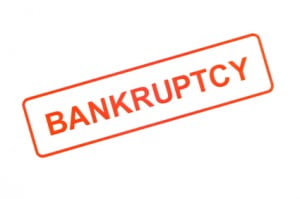Determining If You Should File For Bankruptcy
Bankruptcy may be your best option if you have exhausted other debt reduction options and still find yourself falling further behind. Even if you have filed bankruptcy in the past, you may qualify to file again. If you are considering bankruptcy it is important to review outstanding debt amounts, understand what debt can be included in bankruptcy and determine if you are eligible to file.
Create a list that has all outstanding debt amounts. This allows you to look at what is owed and to get an idea of how long it would take for you to pay it off. Some people may consider bankruptcy if they have been on a budget for an extended period, after reducing expenses and applying the extra money toward outstanding debt, but their financial picture still has not improved. Income and assets may give an idea of which chapter to file. Chapter 7 bankruptcy discharges unsecured debt while Chapter 13 bankruptcy restructures debt into a payment plan with payments made within a certain time period which is typically 3-5 years.
If you are being sued or receive notice of a judgment from a creditor this may also be grounds for bankruptcy, especially if you feel you are unable to pay the judgment. In many cases, bankruptcy provides protection against assets including your car and home. This prevents creditors from seizing your personal property. You may elect to meet with a bankruptcy attorney to review your financial situation to see if you are a good candidate for bankruptcy.
